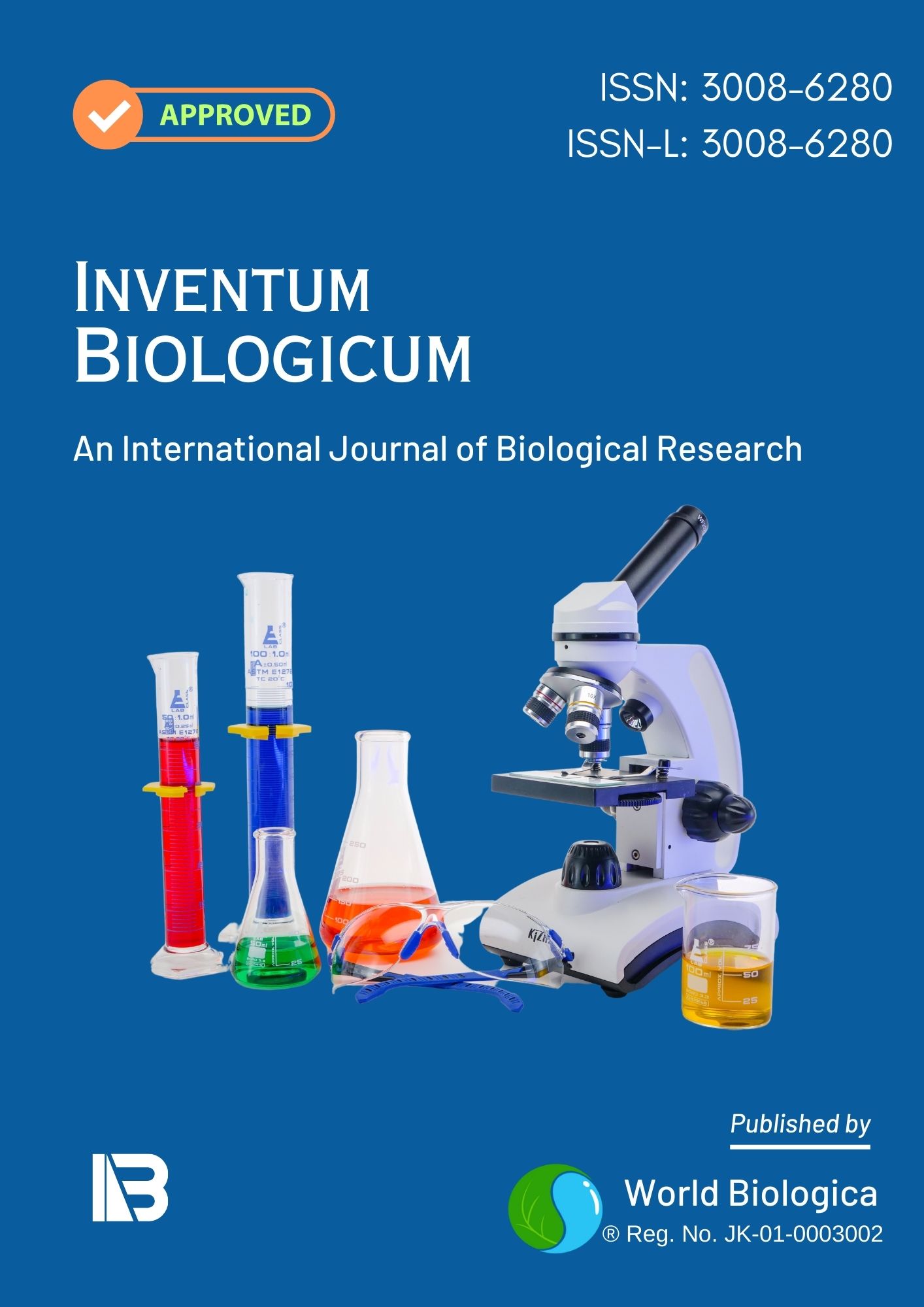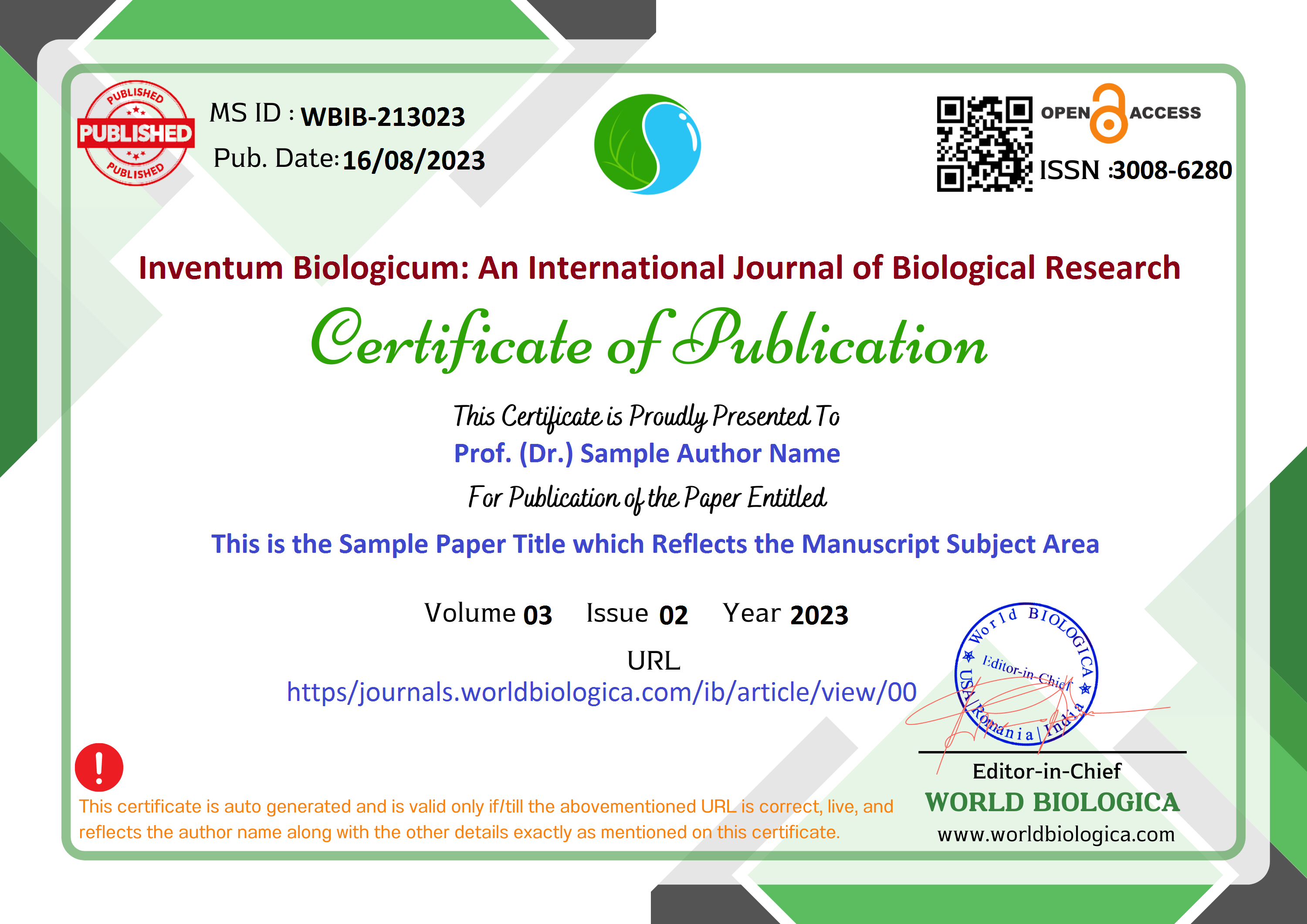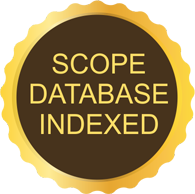Genetically Modified Organisms: From Cloning to Designer Babies
Keywords:
DNA, Genetic engineering, Genetic modification, CRISPR-Cas9, Cloning, Designer babiesAbstract
From cloning to designer babies, genetic engineering in the field of biotechnology has rapidly developed, to the point where ethical debates among scientists and the media have been sparked. Cloning is a process in genetic engineering in which an exact genetic replica of a cell, tissue, or organism is produced with the same DNA as the original. Clones can be manufactured in a lab through embryonic twinning or somatic cell nuclear transfer (SCNT). In 1996, Scottish scientists successfully cloned the first animal using SCNT; a sheep named Dolly. Designer babies are babies whose DNA has been modified either to eradicate certain genes which produce unfavorable traits such as genetic diseases, or to insert certain genes which produce favorable traits such as enhanced intelligence. Designer babies can be produced through preimplantation genetic testing (PGT) or through CRISPR-Cas9 technology. Using PGT, embryos are created through in vitro fertilization (IVF) and after developing, PGT can be performed, allowing embryos that carry desired traits to be selected and transferred into the mother’s uterus. CRISPR-Cas9 works like molecular scissors, allowing genes to be inserted, removed, or replaced. In 2018, Chinese biophysicist Dr. He Jiankui created the world’s first genetically modified humans (twins named Lulu and Nana) by disabling the CCR5 gene to make the twins HIV immune. Major ethical questions are raised with these processes; do they cross ethical boundaries? What exactly are these boundaries? This gray area of bioethics makes it challenging to determine what is ethical and what is not.
Downloads
References
Are we ready for Designer Babies? (2024). In Nishith Desai Associates (pp. 5–17). https://www.nishithdesai.com/fileadmin/user_upload/pdfs/Research_Papers/Designer_Babies.pdf
Hardin, J. (2019, February 13). Genome Editing and the Christian. BioLogos. https://biologos.org/articles/genome-editing-and-the-christian
MedlinePlus. (2018, May 8). Cloning. Medlineplus.gov; National Library of Medicine. https://medlineplus.gov/cloning.html
National Geographic Society. (2022, May 20). Cloning. Education.nationalgeographic.org; National Geographic Society. https://education.nationalgeographic.org/resource/cloning/
National Museums Scotland. (2024). The story of Dolly the sheep. National Museums Scotland. https://www.nms.ac.uk/discover-catalogue/the-story-of-dolly-the-sheep
Raposo, V. L. (2019). The First Chinese Edited Babies: A Leap of Faith in Science. JBRA Assisted Reproduction, 23(3), 197–199. https://doi.org/10.5935/1518-0557.20190042
Regalado, A. (2015, March 5). Engineering the Perfect Baby. MIT Technology Review. https://www.technologyreview.com/2015/03/05/249167/engineering-the-perfect-baby/
Rugnetta, M. (2024). Cloning. In Encyclopædia Britannica. https://www.britannica.com/science/cloning
Ruwitch, J. (2023, June 8). His baby gene editing shocked ethicists. Now he’s in the lab again. NPR. https://www.npr.org/2023/06/08/1178695152/china-scientist-he-jiankui-crispr-baby-gene-editing
Smith, M. (2024, October 27). Genetic Engineering | Talking Glossary of Genetic Terms | NHGRI. Genome.gov; National Human Genome Research Institute. https://www.genome.gov/genetics-glossary/Genetic-Engineering.
Cowen, L. (2023). One and Done? How CRISPR Is Changing the Clinical Outlook for Multiple Diseases. Inside Precision Medicine, 10(3), 16–19. https://doi.org/10.1089/ipm.10.03.04
Grisé, C. (2019, May 13). Designer Babies. Upfront.scholastic.com. https://upfront.scholastic.com/issues/2018-19/051319/designer-babies.html?language=english
Shirvington, P. (2022, July 8). Designer Babies. Snipette. https://snipettemag.com/designer-babies/
What are Non-Transgenic Gene Editing techniques? (2021, October 22). CivilsDaily. https://www.civilsdaily.com/news/what-are-non-transgenic-gene-editing-techniques/
What is CRISPR? (n.d.). Innovative Genomics Institute (IGI). https://innovativegenomics.org/what-is-crispr/
Williams, E. (2023, February 24). What are genome editing and gene therapy? Genomics Education Programme. https://www.genomicseducation.hee.nhs.uk/blog/what-are-genome-editing-and-gene-therapy/.
Downloads
-
Download PDF
 Abstract Views: 468,
Abstract Views: 468,  Download PDF: 120
Download PDF: 120
Published
How to Cite
Issue
Section
License
Copyright (c) 2024 Inventum Biologicum: An International Journal of Biological Research

This work is licensed under a Creative Commons Attribution-NonCommercial-NoDerivatives 4.0 International License.


















